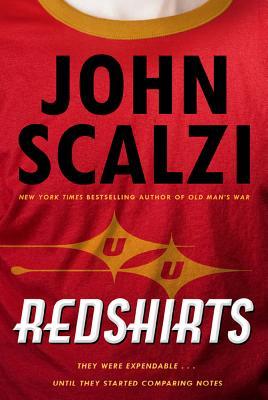These write ups are good for both of us, dear reader. You're getting exposed to books that you most likely have not read and now know you should. I'm reflecting on my past readings a bit more than usual and am learning from it. It seems that there is a common thread in this section of "ambiance" books. They're both about places rather than people.
That's not to say that the people are poorly written. And, it can be said, that these places are so fleshed out as to be characters in these books. But the first book as about a circus and this book is about a city. When I was told of this book it was explained that Palimpsest was a sexually transmitted city. That's not really giving Palimpsest the description it deserves; that's just a single perspective. Palimpsest is a refuge and a prison and an escape. The way to this place is to have sex with someone who's been there. Afterward the person will develop a blemish in the shape of a street map and will soon dream of this city. You don't have a choice about going there and if you want to return you don't have a choice about whom to sleep with. It's a refuge and a prison.
The city itself is a strange place. Sure it's a magic city and things are strange but even beyond that all of the visitors are not quite normal. Because of the way to get there it means that all non-residents are either new and lost or full of desire. Each person is out of a comfort zone and that makes the city vibrate with an energy that could never be sustained in the waking world. And it's a lot of fun to look at. Escher made physical locations that could not physically exist. This is more like an emotional Escher image.
I suppose it's urban fantasy but in the sense that it's fantasy about "urban". The main character is a city. The story revolves around people using each other and the city to find or lose themselves. City city city. So it's not "urban fantasy" in the way that it has come to be know (read: trashy or pulp). It's fantasy delving into the concept of urban and urban resident.
That's not to say that the people are poorly written. And, it can be said, that these places are so fleshed out as to be characters in these books. But the first book as about a circus and this book is about a city. When I was told of this book it was explained that Palimpsest was a sexually transmitted city. That's not really giving Palimpsest the description it deserves; that's just a single perspective. Palimpsest is a refuge and a prison and an escape. The way to this place is to have sex with someone who's been there. Afterward the person will develop a blemish in the shape of a street map and will soon dream of this city. You don't have a choice about going there and if you want to return you don't have a choice about whom to sleep with. It's a refuge and a prison.
The city itself is a strange place. Sure it's a magic city and things are strange but even beyond that all of the visitors are not quite normal. Because of the way to get there it means that all non-residents are either new and lost or full of desire. Each person is out of a comfort zone and that makes the city vibrate with an energy that could never be sustained in the waking world. And it's a lot of fun to look at. Escher made physical locations that could not physically exist. This is more like an emotional Escher image.
I suppose it's urban fantasy but in the sense that it's fantasy about "urban". The main character is a city. The story revolves around people using each other and the city to find or lose themselves. City city city. So it's not "urban fantasy" in the way that it has come to be know (read: trashy or pulp). It's fantasy delving into the concept of urban and urban resident.





